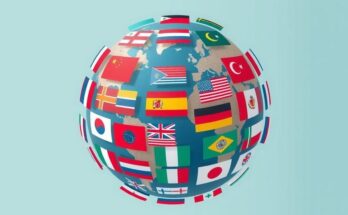Libya is facing renewed turmoil after violence erupted in Tripoli following a decree by Prime Minister Abdul Hamid Dbeibah to dismantle armed militias. The country remains divided between two rival governments, leading to increased chaos and public protests for elections. Experts suggest this crisis may present opportunities for political progress, although the threat of civil war looms large. The UN has proposed new options for a political roadmap toward the imminent need for elections and unity.
Libya finds itself once again at a critical juncture, grappling with turmoil amidst a facade of calm in Tripoli. The chaos was reignited earlier this month when Prime Minister Abdul Hamid Dbeibah issued a controversial decree aimed at dismantling armed militias, notably targeting the influential Stabilization Support Apparatus (SSA). Tragically, this directive culminated in violence, with at least eight civilians killed and dozens more bodies later discovered in a hospital under SSA control.
Hanan Salah, a Libya researcher at Human Rights Watch, stated that the recent violence highlights the precariousness of Libya’s current situation. “The sheer recklessness of the warfare… shows the blatant disregard these armed groups have for the life and livelihoods of civilians,” she asserted. The possibility of further violence looms as Libya remains split between rival governments in the east and west, leading to an unstable political environment.
Since 2014, the country has been divided into two factions: the United Nations-backed Government of National Unity in Tripoli, led by Dbeibah, and the rival House of Representatives in the east, under Prime Minister Ossama Hammad. The eastern faction is substantially bolstered by former warlord Khalifa Haftar, who has consolidated control over armed militias. Dbeibah’s move to disband militias in the west suggests a shift toward centralization of power similar to that seen in the east.
Following days of violence in mid-May, a tacit agreement was reached between competing militias and Dbeibah’s administration. Yet, this ceasefire was met with renewed public demands for national elections and a revival of the constitutional drafting process, both stalled since the failed peace initiative in December 2021. Protesters even called for Dbeibah’s resignation, which he has yet to address directly, only expressing a commitment to a Libya free from militia control and corruption.
Dbeibah’s consolidation of power appears to be a key objective. Tim Eaton from Chatham House described the Libyan conflict as having reached a standstill, with factions vying for control over state resources. Recent disputes, particularly concerning the Libyan Post, Telecommunications and Information Technology Company, have intensified tensions among these factions.
While the immediate future remains uncertain with the risk of civil war ever-present, there are some optimistic perspectives on a possible path forward. Eaton noted, “There is a real shot for the UN to capitalize on this moment to make some political progress.” He pointed to past instances where unrest has catalyzed meaningful political shifts — such as the eventual split of the country in 2014 and a UN-led initiative in 2020 that aimed to form a new government.
The latest crisis may present an opportunity to transform Libya’s trajectory, with calls for a unified government to mend the institutional divide between both factions. The United Nations Support Mission in Libya (UNSMIL), originally established in 2011, has released a report detailing several pathways toward democracy, including simultaneous presidential and legislative elections or the establishment of a political dialogue committee.
Salah emphasized the need for consensus among Libyan factions, as the human rights crisis cannot be resolved overnight. “Conducting free and fair elections is elusive today, but at the end of the day, what option do the competing Libyan parties really have?”
Libya’s precarious political landscape is once again under scrutiny as violence disrupts the calm within Tripoli. With an ongoing divide between rival governments and rising public demands for unity and democratic processes, the potential for significant political progress exists. However, observers warn that the situation remains volatile, and recent flare-ups of violence may signify deeper issues that require urgent attention. The international community, particularly the UN, may have a crucial role to play in fostering an environment conducive to peace and elections.
Original Source: www.dw.com




